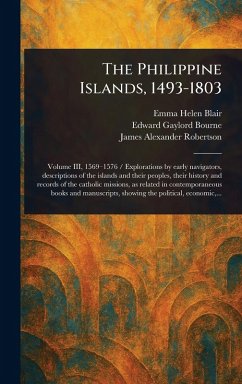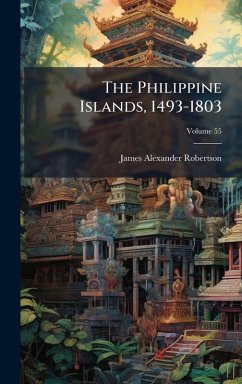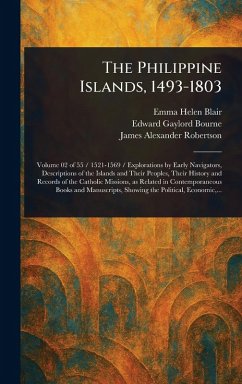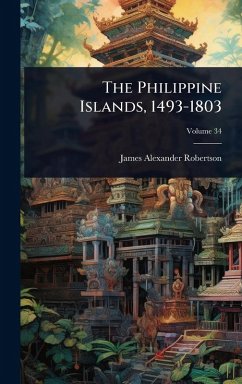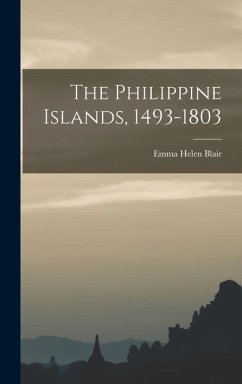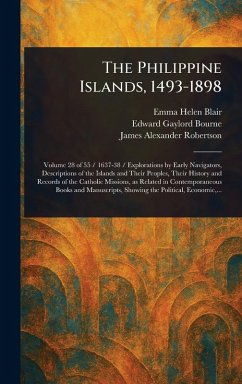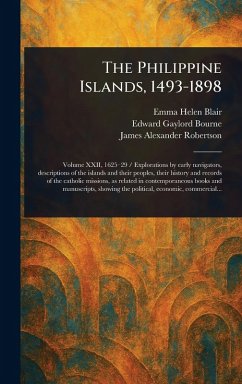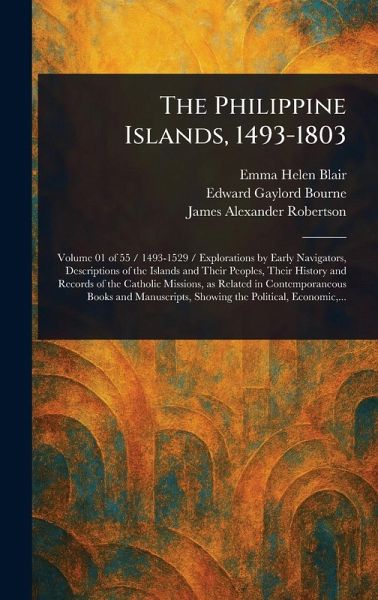
The Philippine Islands, 1493-1803
Versandkostenfrei!
Versandfertig in über 4 Wochen
30,99 €
inkl. MwSt.

PAYBACK Punkte
15 °P sammeln!
Delve into the early history of the Philippines with "The Philippine Islands, 1493-1803, Vol. 1." This meticulously reproduced volume offers a fascinating glimpse into the Spanish colony during the 15th and 16th centuries. Compiled from various historical sources, this first volume (1493-1529) explores the initial encounters and exploration of the Philippine Islands. Examine primary source accounts and historical documents shedding light on the demarcation line of Alexander VI and its impact on the region. Explore the expeditions and discoveries that shaped the early colonial landscape of the ...
Delve into the early history of the Philippines with "The Philippine Islands, 1493-1803, Vol. 1." This meticulously reproduced volume offers a fascinating glimpse into the Spanish colony during the 15th and 16th centuries. Compiled from various historical sources, this first volume (1493-1529) explores the initial encounters and exploration of the Philippine Islands. Examine primary source accounts and historical documents shedding light on the demarcation line of Alexander VI and its impact on the region. Explore the expeditions and discoveries that shaped the early colonial landscape of the Philippines. A valuable resource for anyone interested in the history of Southeast Asia, world history, and the age of exploration. "The Philippine Islands, 1493-1803, Vol. 1" provides invaluable insights into a pivotal period in Philippine history. This work has been selected by scholars as being culturally important, and is part of the knowledge base of civilization as we know it. This work is in the public domain in the United States of America, and possibly other nations. Within the United States, you may freely copy and distribute this work, as no entity (individual or corporate) has a copyright on the body of the work. Scholars believe, and we concur, that this work is important enough to be preserved, reproduced, and made generally available to the public. We appreciate your support of the preservation process, and thank you for being an important part of keeping this knowledge alive and relevant.





